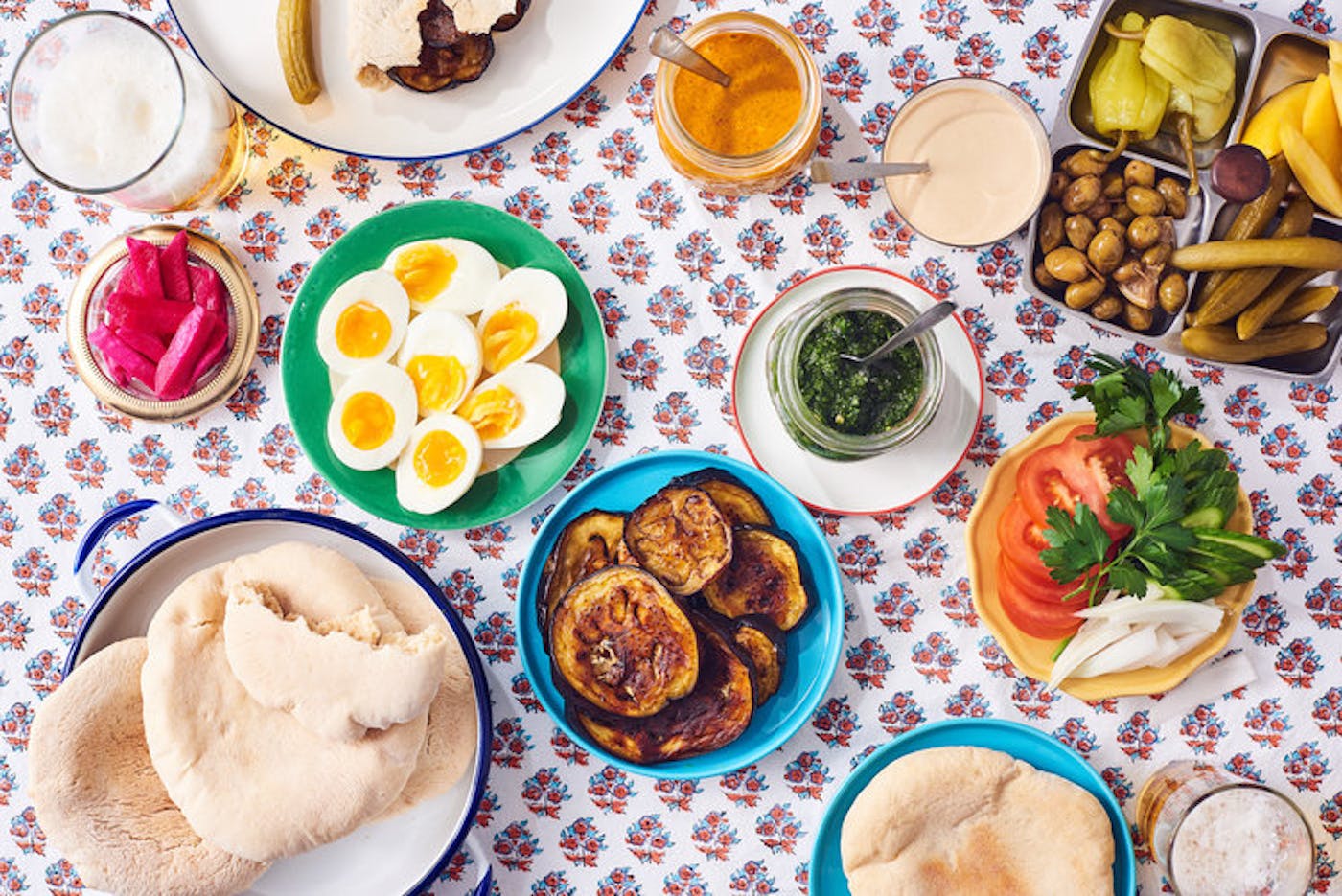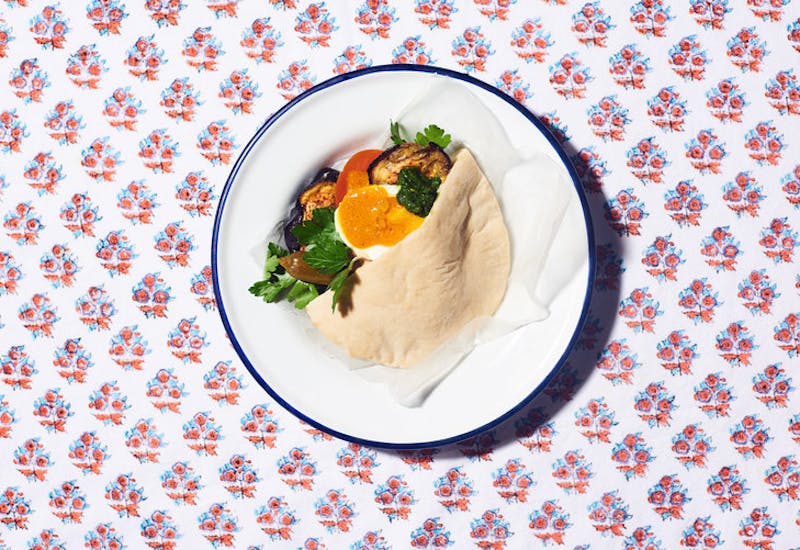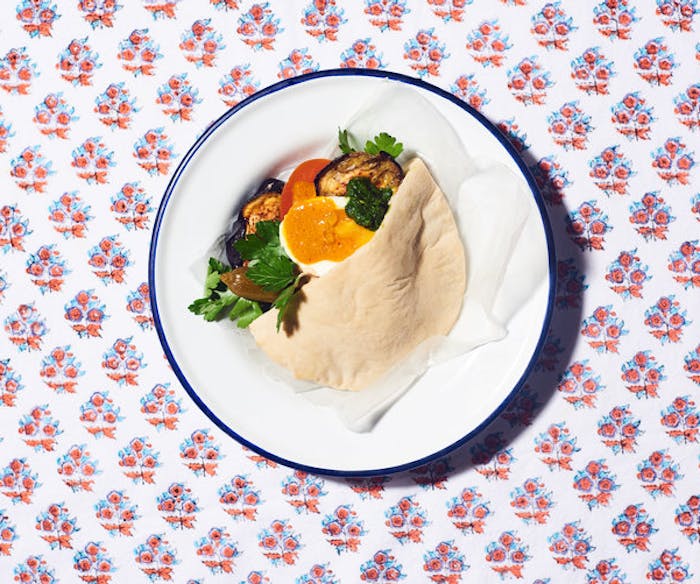As a young girl growing up in Israel in the 1970s, Tami Shemtov was often embarrassed. She was short, had a boy’s haircut, and couldn’t read until she was in the 3rd grade because of a learning disability. But, nothing was worse than the embarrassment from her father.
In her suburb of Tel Aviv, “having a Sabra [Israeli-born] parent was the best, having an Anglo-Saxon parent like my mom was second best, something to be proud of,” she explained at our live storytelling event Schmaltzy in Tel Aviv. “But, nothing really counted if you were suspected to be an Arab — and my father was the only suspect around.”
Her father, who immigrated to Israel when he was 18 from Iraq, had an Arab name: Sabich. When Tami questioned him about it as a child, he explained that it means dawn, or first light, in the language of the Iraqi Jews. While other Iraqi immigrants with the same name switched to Tzvi when they made aliyah, her father refused. “My name is my identity” he told her. Tami recalled: “I became proud of my father for choosing not to deny his Arab origin for the sake of the Israeli melting pot.” Armed with her father’s story, Tami’s embarrassment faded.
“But, sometime in my 20s, I got embarrassed again,” she explained at Schmaltzy. “My father’s name had become a name of a very popular dish. Imagine your father is being called falafel or pizza. I couldn’t believe it was happening to me.” In Israel, say “sabich” and almost no one will think of a man’s name.
"My father’s name had become a name of a very popular dish. Imagine your father is being called falafel or pizza. I couldn’t believe it was happening to me.”
They will think, instead, of a beloved national dish made of fried eggplant, hard-boiled or long-baked eggs, tahini, chopped salad, pickles and a piquant sauce called amba, stuffed into a pita or rolled into a flatbread called laffa. The recipe has its roots in Iraq, where generations of Jewish families would lay out a spread for Shabbat breakfast. It grew out of a need to use the “brown eggs” from a Shabbat lunch recipe called t’bit, which enterprising cooks paired with other ingredients that could be prepared before shabbat for a simple but hearty meal.
Iraqi Jews, like Tami’s family brought the custom with them to Israel; serving it as a spread on Saturday mornings, allowing each family member to customize their dish. But the origin of the sandwich as an Israeli icon is traced to the 1980s in Ramat Gan, a suburb of Tel Aviv, where Iraqi immigrant Sabich Tzvi Halabi started to sell the Shabbat dish to bus drivers at a kiosk at the end of a bus line. The recipe caught on and spread across the country — and to the United States where it’s sold to expats looking for a taste of Israel.
Over time, Tami came to embrace her father’s name, writing a Hebrew-language children’s book called Saba Sabich, or Father Sabich, about her dad and the sandwich. More than 40,000 Israeli children received it as part of PJ Library in Israel. Tami added: “I hope it will make them feel more comfortable with whom they are, where they come from, with their family, heritages, cultures.” She dedicated it with love to her father, Sabich, “who taught me how to be courageous.”


